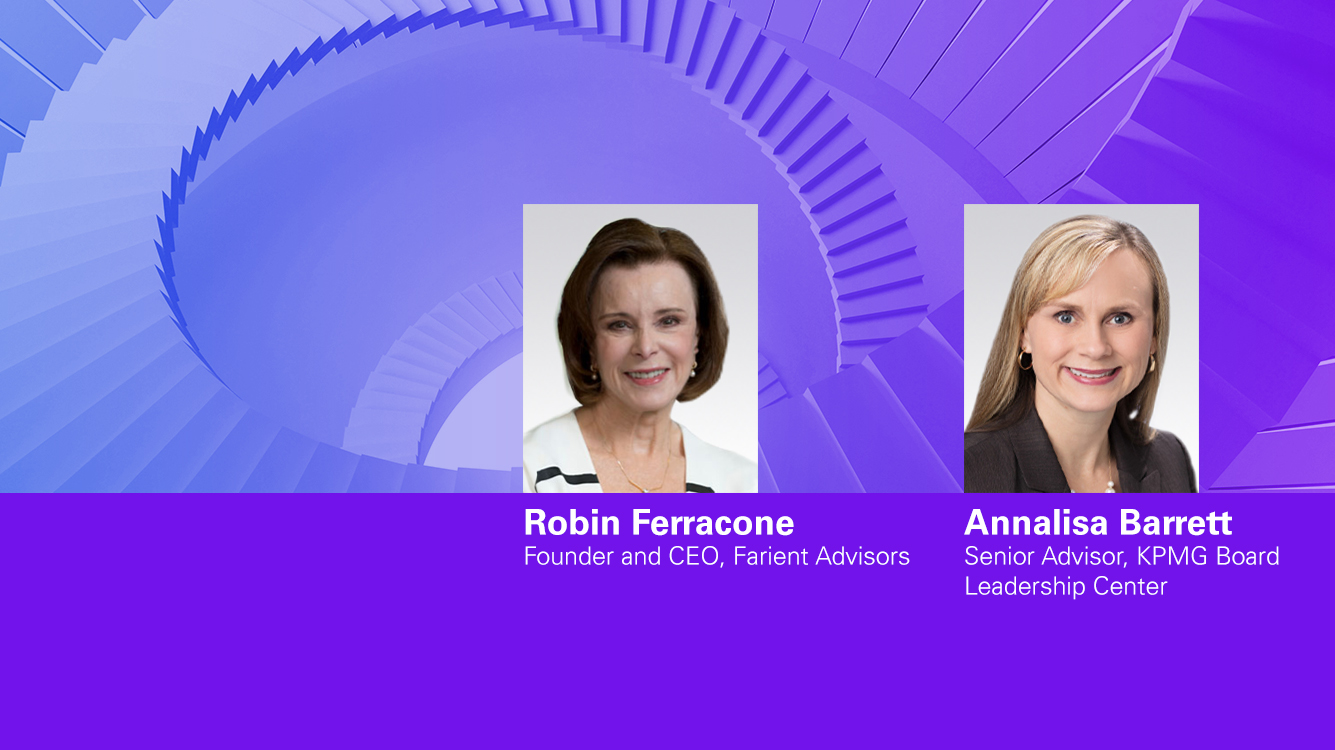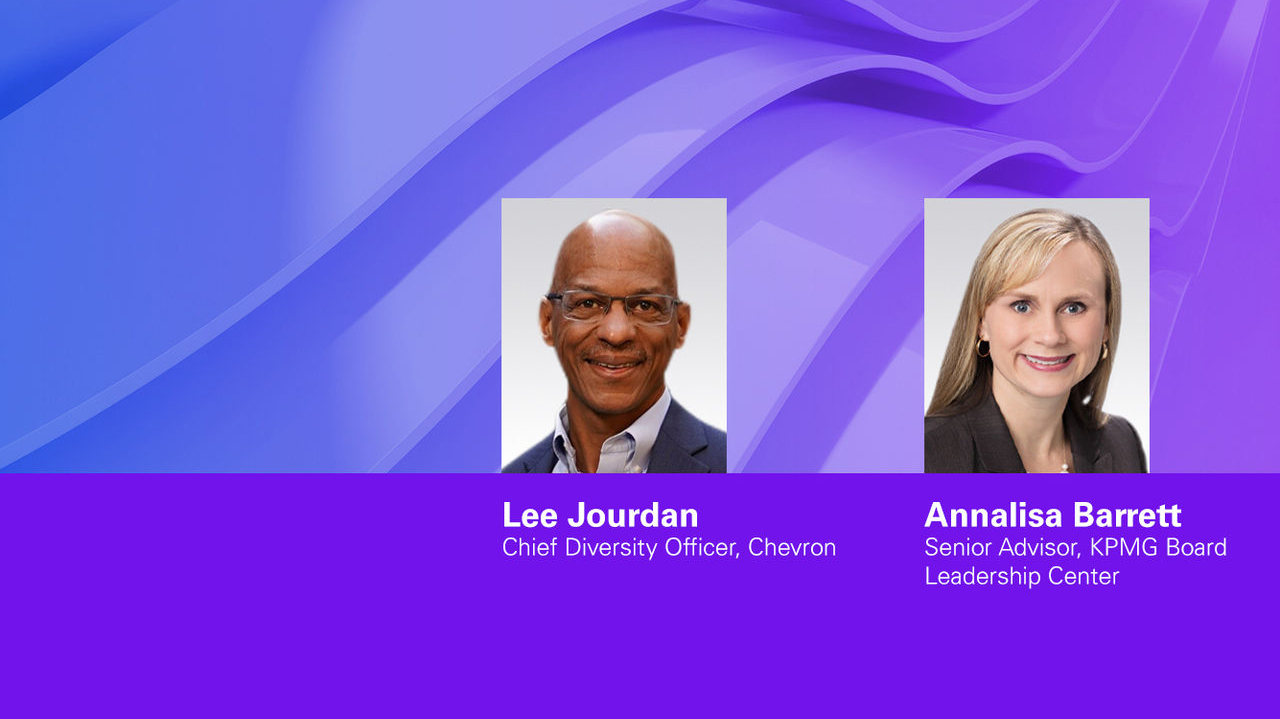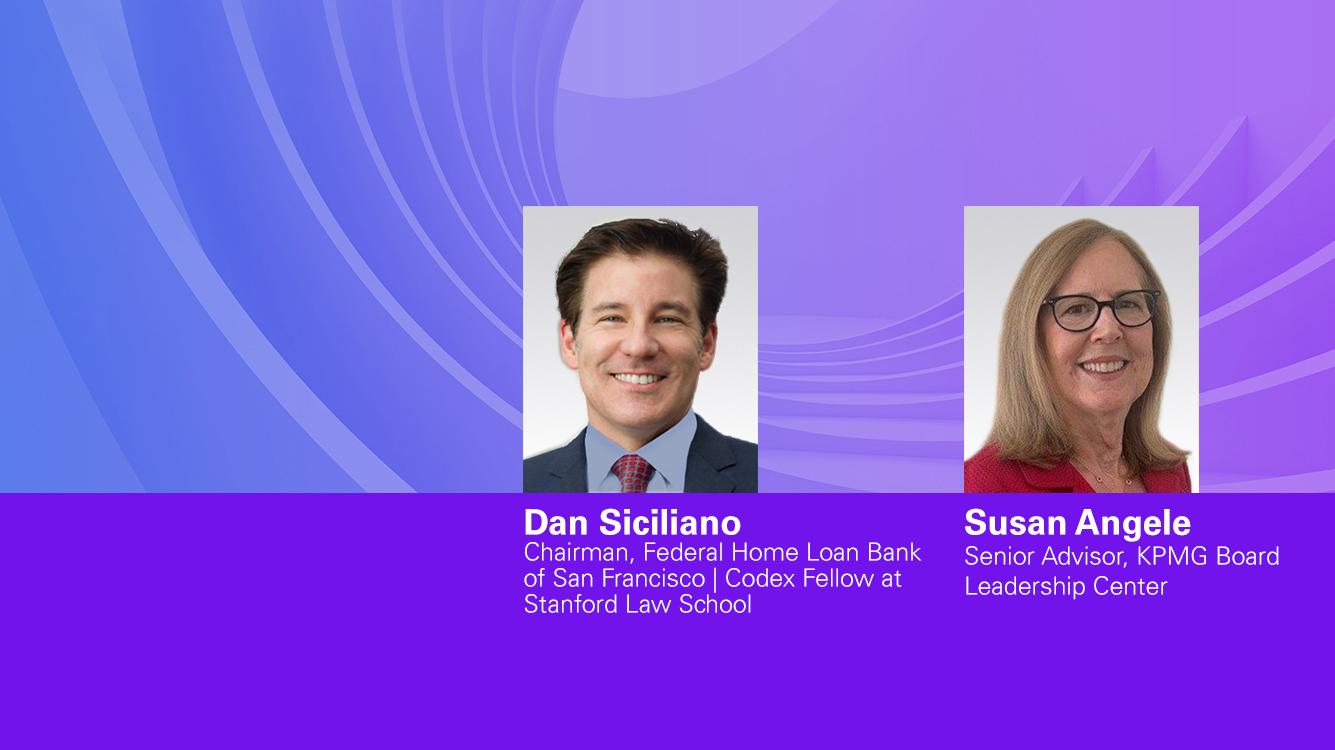Board composition and effectiveness
The board's role in board composition, diversity, effectiveness, succession and talent, and more.

Featured board insights and programs

Latino representation on Fortune 1000 boards: 2023 Edition
KPMG and the Latino Corporate Directors Association fourth study examining Latino representation on Fortune 1000 boards.

Quarterly webcast: A Boardroom Lens on Generative AI
A discussion on transformational implications of generative AI—opportunities, risks, and disruptions ahead—and how boards can help their companies navigate the promise and pitfalls of this game-changing technology.

Thinking differently, driving innovation at DARPA
Dr. Stefanie Tompkins, director of the Defense Advanced Research Projects Agency, shares her views on diversity and driving breakthrough innovation.
Board composition and effectiveness
KPMG Board Diversity Disclosure Benchmarking Tool
Track board diversity disclosures using the KPMG Board Diversity Disclosure Benchmarking Tool.
Board Governance Video insights
Receive the latest insights from the Board Leadership Center
Sign up to receive Board Leadership Weekly and Directors Quarterly




